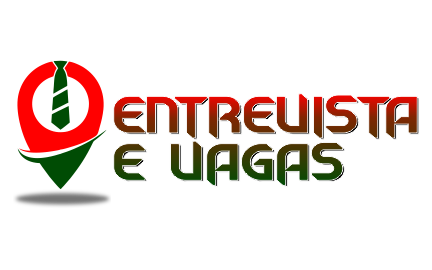Welcome to our guide on essential techniques for landlords in property management
Enhance your skills in Property Management with our expert tips on tenant relations, lease agreements. Essential Techniques for Landlords. From understanding lease agreements to maintaining your property, we’ll cover it all. Let’s dive in!
Key Takeaways about Essential Techniques for Landlords
- Property management requires a range of skills to effectively handle tenant relations and rental properties.
- Lease agreements are essential for protecting your interests and ensuring a steady stream of property income.
- Building positive tenant relationships and effective communication strategies are crucial for tenant satisfaction and retention.
- Regular property upkeep and maintenance are vital for attracting potential tenants and maintaining the value of your rental property.
- By implementing these essential techniques, landlords can become successful property owners in the real estate management industry.
Understanding Lease Agreements

Creating a comprehensive lease agreement is essential for landlords who aim to protect their assets and maintain a harmonious landlord-tenant relationship. Let’s explore some landlord tips that can help you craft a strong and foolproof lease agreement:
- Clearly outline the duration of the lease, specifying the start and end dates. Additionally, include any provisions for lease renewals or terminations.
- Define the rent amount and payment schedule, specifying the acceptable forms of payment. It’s also crucial to outline any penalties for late payments.
- Detail the security deposit amount and the conditions for its refund or partial withholding.
- Specify any restrictions or rules regarding pets, smoking, noise levels, or subletting.
- Include a comprehensive description of the property, outlining its condition and any existing damages or maintenance requirements.
- Highlight the responsibilities of both the landlord and tenant when it comes to property maintenance, repairs, and utilities.
- Specify any additional fees or charges, such as utilities, parking, or amenities.
- Clearly outline the process for resolving disputes, including mediation or arbitration procedures.
By incorporating these important elements into your lease agreements, you can protect your interests as a landlord and maintain a professional and transparent relationship with your tenants.
Remember, a well-drafted lease agreement not only protects your property and income but also sets clear expectations for both parties involved, reducing the likelihood of disputes or misunderstandings.
Now that you understand the significance of lease agreements and some essential tips for creating a thorough contract, you can confidently proceed with managing your rental property.
| Benefits of Comprehensive Lease Agreements | Tips for Creating Strong Lease Agreements |
|---|---|
| 1. Protects landlord’s interests and property. | 1. Clearly outline lease duration and payment terms. |
| 2. Establishes tenant responsibilities and obligations. | 2. Include rules regarding pets, smoking, and subletting. |
| 3. Sets clear expectations for both parties. | 3. Detail property condition and maintenance responsibilities. |
| 4. Reduces the likelihood of disputes or misunderstandings. | 4. Specify the process for resolving disputes. |
Essential Techniques for Landlords: Tenant Relations and Communication
In the realm of property management, developing positive relationships with tenants is crucial for the success and profitability of any rental property. Effective communication strategies play a pivotal role in ensuring tenant satisfaction, resolving conflicts, and promoting tenant retention. In this section, we will explore the importance of tenant management and provide valuable landlord tips on fostering healthy tenant relations.
Promoting Open Lines of Communication
Open and transparent communication is the foundation of a successful landlord-tenant relationship. By maintaining regular and accessible communication channels, landlords can ensure that tenants feel heard and valued. This can be achieved through various means:
- Providing tenants with multiple communication methods, such as email, phone, or in-person meetings, to accommodate their preferences and availability.
- Responding promptly to tenant inquiries, requests, and concerns.
- Regularly updating tenants about any property-related news, such as maintenance schedules or policy changes.
Essential Techniques for Landlords: Conflict Resolution and Mediation
Conflicts may arise between landlords and tenants for various reasons. It is essential for landlords to approach these conflicts with empathy, patience, and a willingness to find mutually beneficial solutions. Here are some tips for conflict resolution and mediation:
- Actively listen to tenants’ concerns and grievances, demonstrating understanding and empathy.
- Find common ground and explore alternative solutions that address both parties’ interests.
- Consider involving a neutral third party, such as a professional mediator, to facilitate constructive dialogue and reach a resolution.
“Effective communication is the key to resolving conflicts and fostering harmonious relationships with tenants.”
Promoting Tenant Satisfaction
Satisfied tenants are more likely to renew their leases, recommend the property to others, and maintain the rental unit in good condition. To enhance tenant satisfaction, landlords can:
- Regularly assess and address maintenance issues promptly to ensure tenants’ comfort and well-being.
- Provide clear guidelines on property rules, expectations, and procedures to avoid misunderstandings.
- Offer additional amenities or services that enhance the overall living experience for tenants.
Essential Techniques for Landlords: Effective Communication Tips for Landlords
| Communication Tip | Description |
|---|---|
| Active Listening | Pay attention to tenants’ concerns and actively engage in the conversation. |
| Timely Responses | Respond promptly to tenant inquiries and requests to demonstrate attentiveness. |
| Clear Communication | Provide information in a concise and easily understandable manner to avoid confusion. |
| Professionalism | Conduct all communications with tenants in a respectful and professional manner. |
| Consistent Updates | Keep tenants informed about any relevant property updates or changes in a timely manner. |
By implementing these effective communication tips, landlords can establish strong tenant relations, enhance tenant satisfaction, and contribute to a harmonious rental environment.
Effective Property Upkeep and Maintenance
In property management, maintaining a rental property in good condition is crucial for attracting potential tenants and ensuring tenant satisfaction. Property maintenance not only enhances the overall appeal of the property but also helps in preserving its long-term value. Here, we will provide landlords with practical tips and best practices for effective property upkeep and maintenance.
- Regular Inspections: Conducting periodic inspections of the rental property is essential to identify any maintenance issues or potential problems before they escalate. By addressing these issues promptly, landlords can prevent costly repairs and maintain a safe and comfortable environment for tenants.
- Prompt Repairs: Responding promptly to maintenance requests and addressing repairs in a timely manner is key to tenant satisfaction. Landlords should establish a reliable network of contractors or handymen who can efficiently handle various repair tasks, such as plumbing, electrical, or HVAC issues.
- Landscape Management: Curb appeal plays a significant role in attracting potential tenants. Regularly maintaining the property’s landscape, including mowing the lawn, trimming bushes, and keeping the garden tidy, enhances the overall visual appeal and creates a welcoming environment.
- Cleaning and Upkeep: Proper cleaning and upkeep of the rental property are essential for maintaining a hygienic and presentable living space. Landlords should establish clear expectations around cleanliness, conduct regular deep cleaning, and address any issues related to pests or mold proactively.
By implementing these property maintenance tips, landlords can ensure that their rental property remains in excellent condition, attracting quality tenants and maximizing rental income. Effective property upkeep not only benefits landlords but also contributes to positive tenant experiences and long-lasting tenant relationships.
“Regular property maintenance is a key element in successful property management. It not only helps in avoiding potential problems but also creates a positive and desirable living environment for tenants.” – Emily Johnson, Experienced Landlord
| Benefit | Description |
|---|---|
| Attracting quality tenants | A well-maintained property attracts high-quality tenants who are more likely to extend their tenancy and take care of the property. |
| Maximizing rental income | A property in good condition can command higher rental rates, leading to increased income for landlords. |
| Preserving property value | Regular maintenance helps in preserving the property’s value, ensuring a higher resale or rental value in the future. |
| Positive tenant experiences | A well-maintained property creates a positive living environment, contributing to tenant satisfaction and retention. |
Conclusion about Essential Techniques for Landlords
In conclusion, mastering the essential techniques of property management is crucial for landlords who aim to effectively handle their rental properties. By practicing these techniques, landlords can not only maintain positive relationships with their tenants but also maximize their property income. Successful property owners in the real estate management industry are those who implement these strategies in their daily operations.
One of the key aspects of property management is understanding and creating comprehensive lease agreements that protect the landlord’s interests. These agreements provide a legal foundation for the landlord-tenant relationship and ensure a steady stream of income. Additionally, effective communication with tenants is vital for building trust, resolving conflicts, and creating a harmonious rental environment.
Furthermore, landlords should prioritize property upkeep and maintenance to attract potential tenants and keep their rental properties in good condition. Regular maintenance not only increases the value of the property but also enhances tenant satisfaction, leading to higher retention rates.

FAQ
What are some essential techniques for landlords in property management?
Landlords should focus on mastering skills such as property maintenance, tenant management, and effective communication. They should also have a good understanding of rental property laws and regulations.
Essential Techniques for Landlords: Why are lease agreements important in property management?
Lease agreements provide a legal framework for the landlord-tenant relationship. They outline the responsibilities of both parties, protect the landlord’s interests, and ensure a steady stream of property income.
How can landlords build positive tenant relations and improve communication?
Landlords can foster positive tenant relations by maintaining open lines of communication, promptly addressing concerns and repairs, and providing a comfortable living environment. Clear and effective communication is key to resolving conflicts and promoting tenant satisfaction.
Essential Techniques for Landlords: How important is property upkeep and maintenance in property management?
Property upkeep and maintenance are crucial for attracting tenants and keeping the rental property in good condition. Landlords should implement regular maintenance schedules, promptly address repairs, and ensure that the property meets safety and quality standards.

